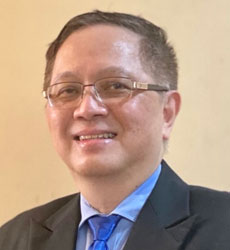June 12, 2025 l Manila Bulletin

The Philippine Independence Day celebration in the Pacific Northwest province of British Columbia is muted this year because of the Lapu-Lapu Festival tragedy here last April. Metro Vancouver has the second-largest Filipino community in Canada next to Greater Toronto, and the Fil-Canadians are regarded as a significant demographic in this city’s multicultural landscape.
Hyatt Regency Vancouver hosted the just-concluded 2025 World Conference of the International Association of Business Communicators (IABC) with hundreds of delegates from around the globe. “Connect!” was the theme of this year’s conference, since the ability to connect has never been more crucial in the ever-evolving landscape of business communications. Keynote speakers were Google’s Chief Strategist Neil Horne and the University of Southern California’s Center for Public Relations Director Fred Cook.
Highlighting the four-day convention was the recognition ceremony of the IABC Gold Quill Awards, the Oscars of the communications profession. Four Philippine-based organizations won the Gold Quills for 2025, namely: Bases Conversion and Development Authority, Energy Development Corp., Media Wise Communications Inc., and Megaworld Foundation. Media Wise published the winning autobiography of RCBC President and CEO Eugene Acevedo titled Never Stand Alone.
Talk of the town was the spectacular collapse of US President Donald Trump’s relationship with his senior advisor Elon Musk, former head of the Department of Government Efficiency. Last week, their fractured alliance exploded on social media and rapidly escalated into a very public feud. What happens next remains unclear, but this is clearly a nightmare for the publicists of both alpha-male leaders.
Another topic of conversation among the Asian delegates was the recent Shangri-La Dialogue 2025 in Singapore. Many defense ministers and military chiefs of mostly European and Asia-Pacific nations participate in this annual dialogue. In his speech, US Defense Secretary Pete Hegseth urged his Asian counterparts to raise defense spending to 5 percent of their gross domestic product (GDP) to match the levels that the US expects from its European allies.
Representatives of American weapons manufacturing firms and defense contractors were part of the US delegation to the global forum in the Lion City. It seems that Hegseth did not participate in the dialogue to discuss diplomacy or promote peace in this part of the world. He acted more as a salesman for the US military-industrial complex.
Why didn’t he call for an increase in infrastructure spending or education budgets? In the Philippines, where the involuntary hunger rate is at its highest since the pandemic, spending 5 percent of our GDP on defense to prepare for a war not of our own making is unconscionable. For a country gripped by poverty and inequality, it would be irresponsible to allocate that much on weapons of war — oblivious to the plight of ordinary Filipinos who struggle to survive every single day.
By end-2025, Philippine GDP is projected to reach ₱27.8 trillion, while the national budget approved by Congress for this year amounts to ₱6.3 trillion. If we follow Hegseth’s recommendation, we would be spending 21.9 percent of the country’s annual budget on defense alone!
Meanwhile, as our defense officials were shaking the hands of their American counterparts in the Singapore dialogue, hundreds of thousands of hardworking Filipinos in the US are at risk of being deported. Is this the way to treat one’s allies? Why do our officials allow this?
Before the midterm elections last month, the latest SWS survey showed that job creation, food security, and adequate healthcare are the top concerns of Filipinos. Yet finding jobs has become more difficult nowadays, and crimes have become more rampant even in affluent areas such as the central business districts of Makati and Taguig. Based on the 2025 Numbeo Crime Index, Manila and Quezon City ranked 2nd and 3rd, respectively, on the list of the top 15 Asian cities with the highest crime rate.
Will spending a trillion pesos on defense create jobs for millions of unemployed Filipinos, and would it put more affordable food on our tables? Our leaders should be more discerning and circumspect—otherwise the future generations will have to pay for the misguided decisions they make today.
***The views expressed herein are his own and do not necessarily reflect the opinion of his office as well as FINEX. For comments, email nextgenmedia@gmail.com. Photo is from Pinterest.

